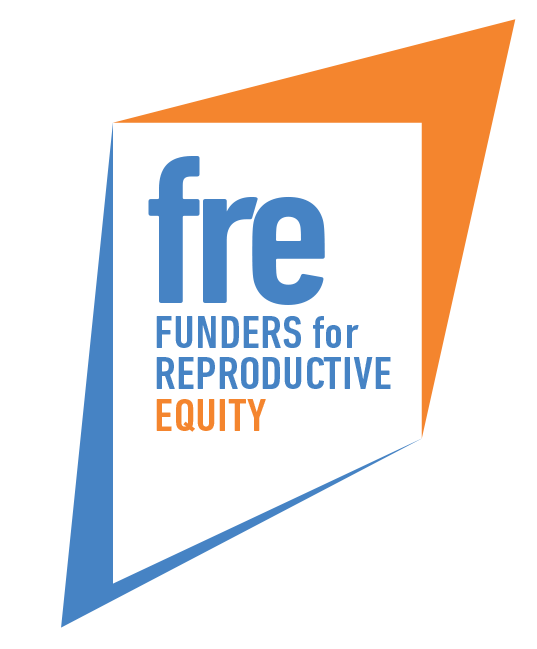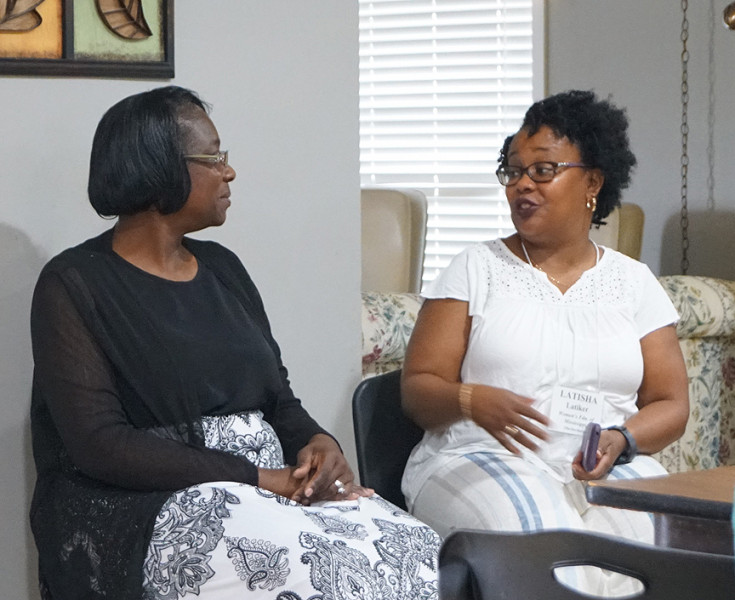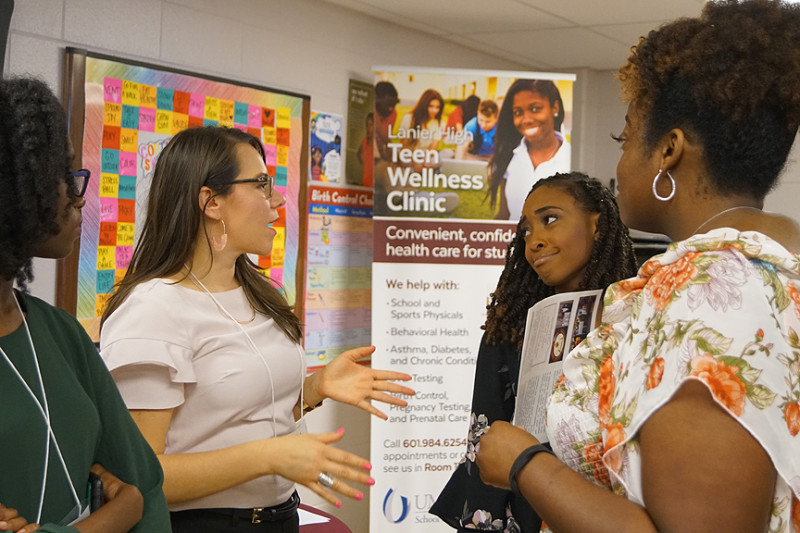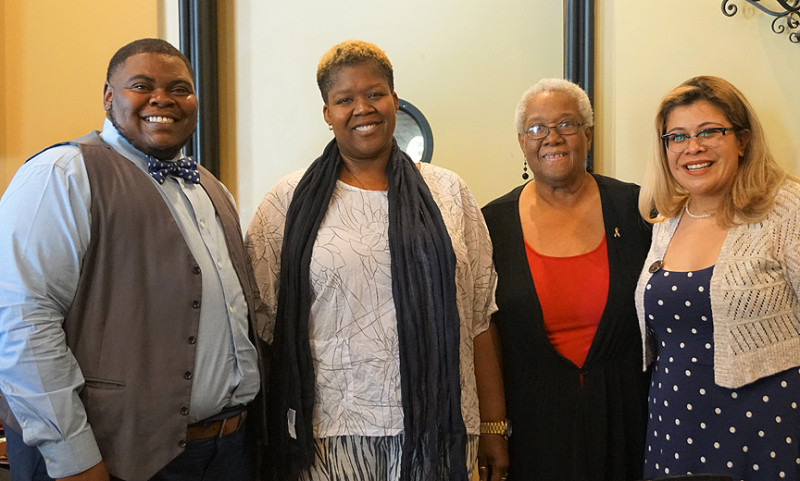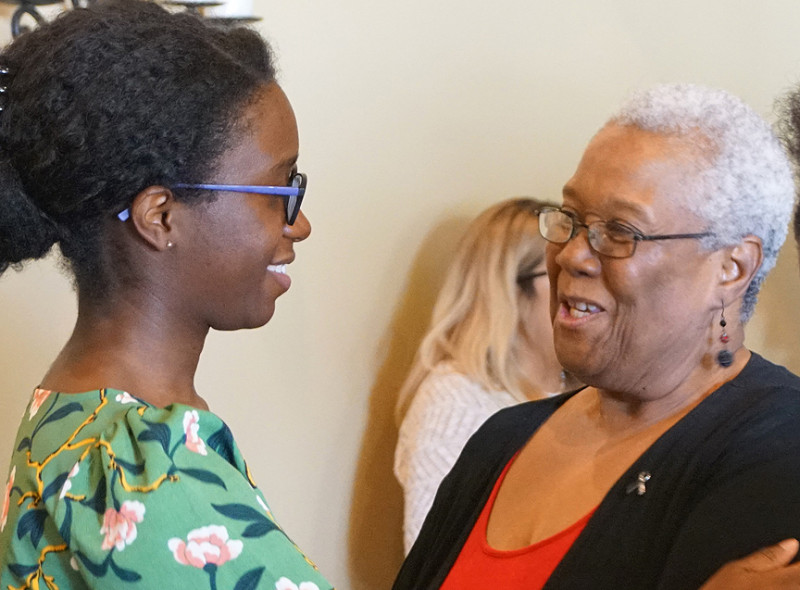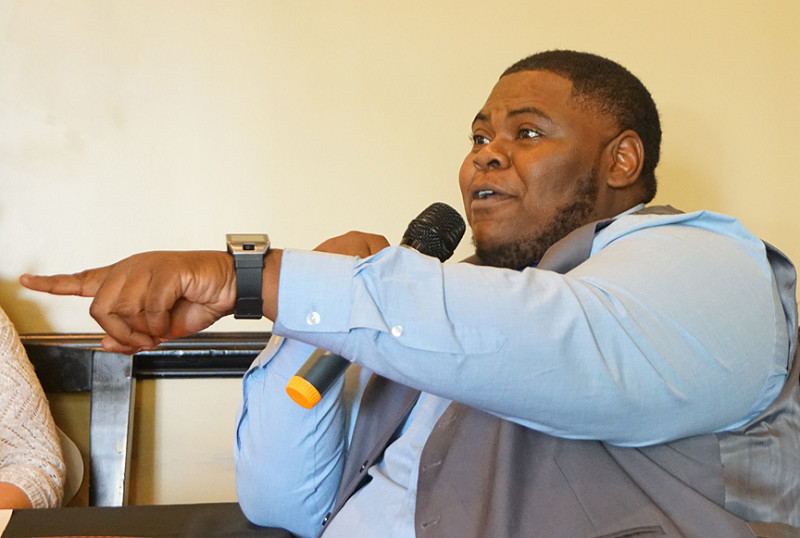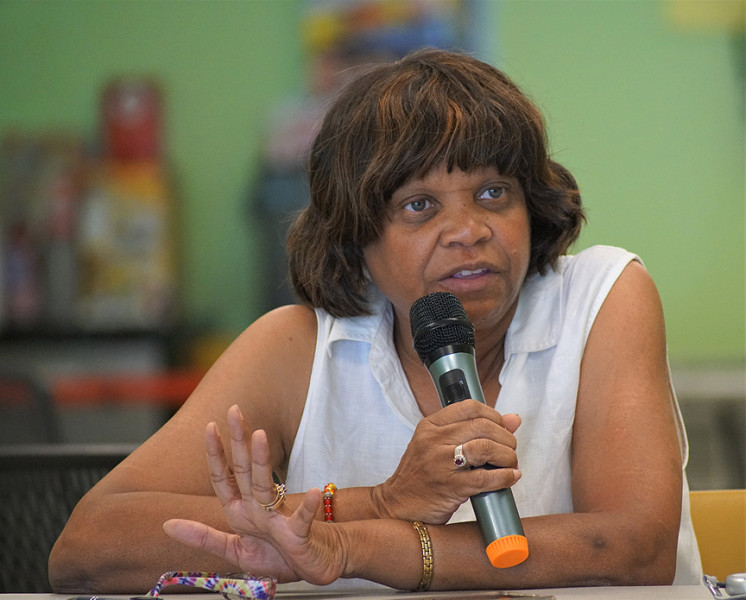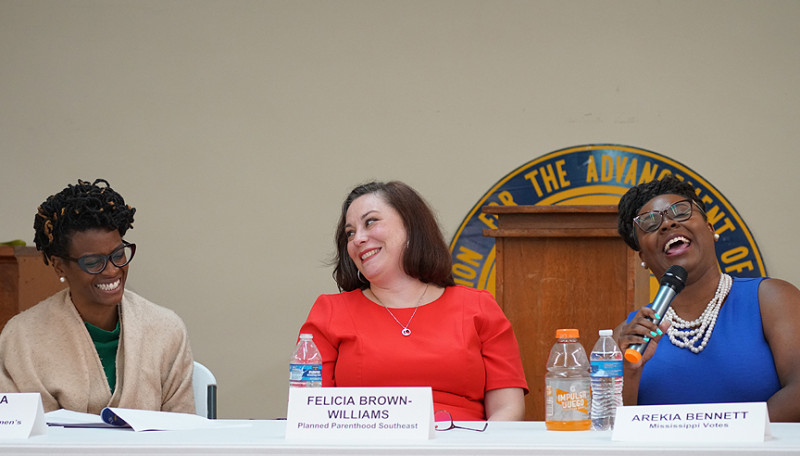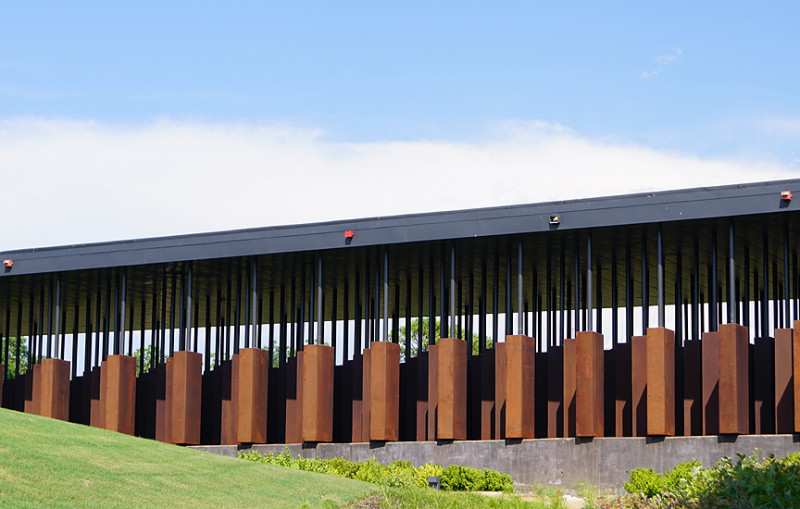2019 Southern Learning Journey Photo Gallery
Click on any photo below to launch the gallery and read captions for each picture.
-
1 Carey Christian Center 1 Carey Christian Center
Nickie Parker (L), Cary Christian Center, and Latisha Latiker (R), Women’s Foundation of Mississippi, discuss the center’s parent/child ministry program, which has succeeded in decreasing the infant mortality rate in Cary County to the lowest in the state of Mississippi through a program that centers the health and wellness needs of low-income pregnant people before and after giving birth.
-
FRE members Mariama Diallo (far left), Ford Foundation, and Leticia Corona (second from left), Hewlett Foundation, speak with Jitoria Jones (second from right) and colleague (far right), Lanier Highschool Teen Wellness Clinic, an innovative health-care delivery model that offers coordinated youth-centered health care for teens during school hours.2 Lanier HS 1 2 Lanier HS 1
-
Alabama-focused panel (L-R): Quentin Bell, The Knights & Orchids Society; Dr. Keecha Harris, Keecha Harris and Associates; Sophia Bracy Harris, Federation of Child Care Centers of Alabama; Amanda Reyes, Yellowhammer Fund, offered insight into ways in which, despite extreme adversity, Alabamans have and continue to rise above the challenges to provide needed health services to low income, LGBTQ and other marginalized people in the state.3 Alabama Panel 3 Alabama Panel
-
4 Alabama Panel 4 Alabama Panel
FRE member Mariama Diallo, Ford Foundation (L) speaks with Sophia Bracy Harris, Federation of Child Care Centers of Alabama (R). Now retired, Ms. Bracy Harris co-founded FOCAL as an advocacy organization in 1972 to serve children of low-income families in Alabama.
-
Quentin Bell, The Knights & Orchids Society, a grassroots, southern-centered start-up promoting gender justice and lesbian/gay/bisexual/transgender/queer visibility.5 Quentin Bell 5 Quentin Bell
-
Gloria Dickerson, We2gether Creating Change, an organization working in Drew, Mississippi to move youth and adults from poverty to prosperity.6 Ms. Gloria Dickerson 6 Ms. Gloria Dickerson
-
Civil rights, racial justice and reproductive equity panel at historic NAACP offices in Jackson, Mississippi (L-R): Cassandra Welchlin, Mississippi Black Women’s Round Table; Felicia Brown-Williams, Planned Parenthood Southeast; Arekia Bennett, Mississippi Votes. These advocates integrate civil rights, racial justice and reproductive health and rights concerns into their work, reflecting the lived realities of the people in the communities they serve.7 NAACP panel 7 NAACP panel
-
Fannie Lou Hamer Memorial Statue, Ruleville, Mississippi. The statue and adjacent memorial garden are a tribute to this giant of American civil & women’s rights activism and organizing, who endured threats, intimidation and violence for simply demanding equality and the right to vote. Ms. Hamer’s life embodied the intersectional approach to social progress employed by many of the advocates, activists and service providers with whom we met, recognizing that8 Fannie Lou Hammer Memorial 8 Fannie Lou Hammer Memorial
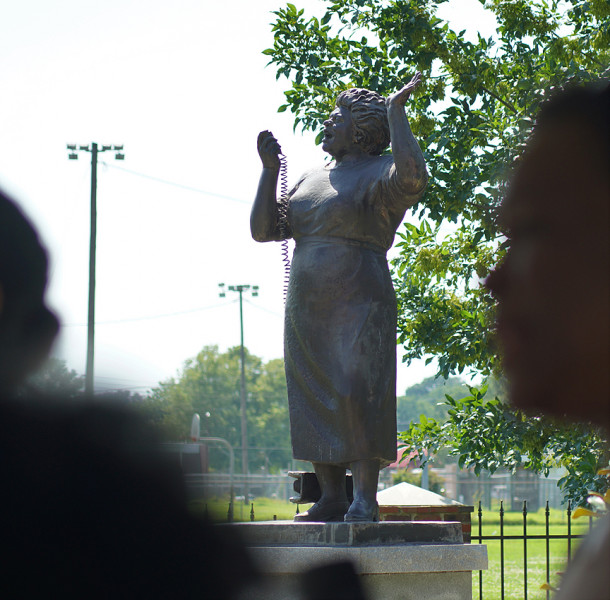
-
National Memorial for Peace and Justice, Montgomery, Alabama. Racial justice issues were purposefully centered throughout the learning journey, manifesting a commitment to intersectional analysis and to the lived experiences of the many activists and organizations that received us. This memorial honors the more than 4400 black people lynched in the United States between 1877 and 1950.9 Peace and Justice Memorial 9 Peace and Justice Memorial
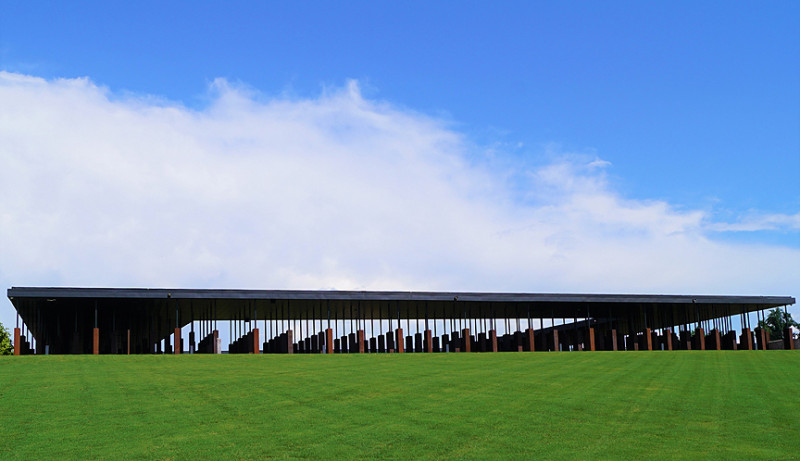
-
National Memorial for Peace and Justice, Montgomery, Alabama. As with virtually every part of the United States, it is impossible to understand the current state of sexual and reproductive health, rights and justice in the U.S. South without considering both the history and legacy of human enslavement and racial apartheid.10 Peace and Justice Memorial 10 Peace and Justice Memorial
